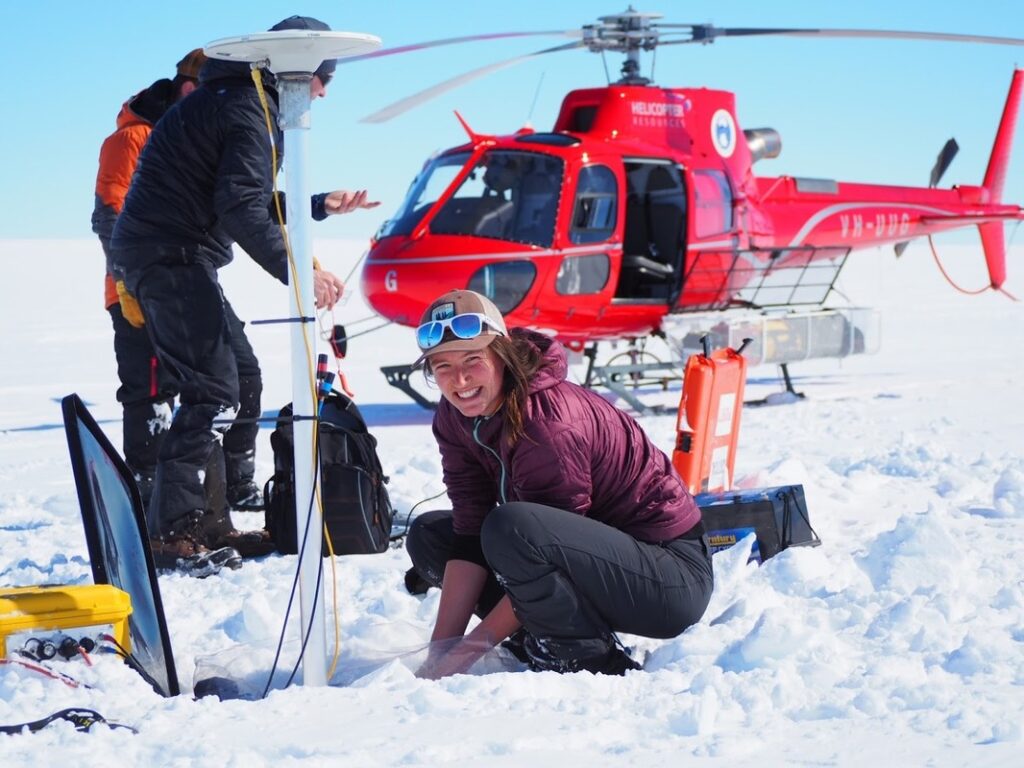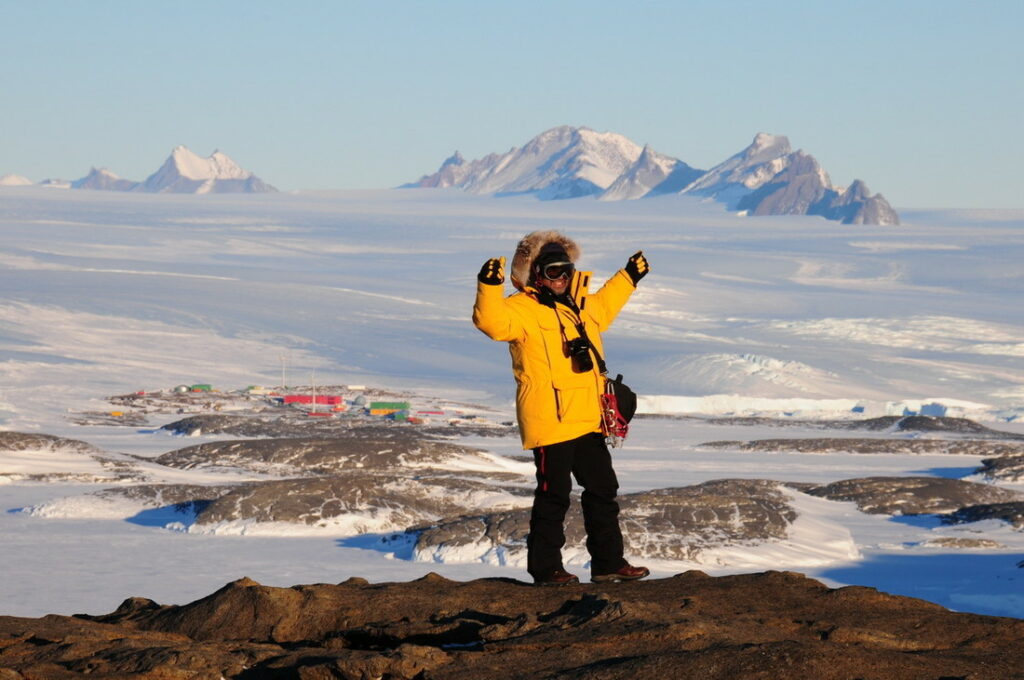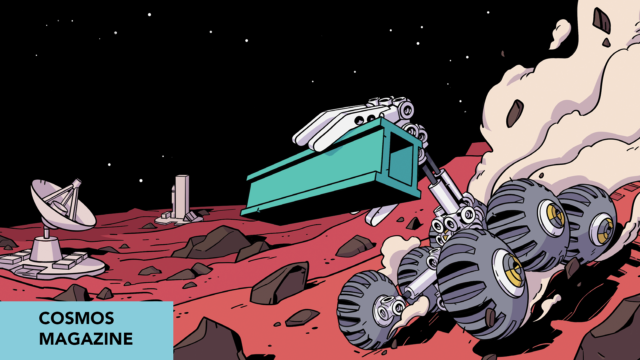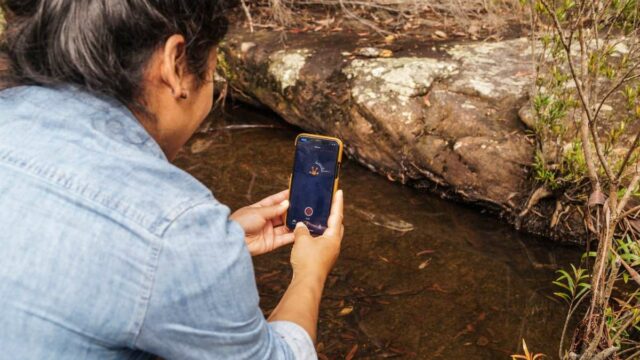The Australian Antarctic Program has just closed its recruitment process for 2022/23. Learn about just some of the amazing Antarctic STEM careers here.
Use this resource to find out about STEM careers in Antarctica and consider future careers pathways with Year 10, 11 and 12 students.
Word Count: 660
If you’ve considered a career as a plumber, electrician, chef or engineer, why not take it to the next level and do it in Antarctica?
The Australian Antarctic Program AAP has over 200 positions at four research stations, spanning 24 roles such as plumbers, electricians, chefs and engineering supervisors.
The question is… Do you have the skills to live and work in a place like no other?
Scroll down to find out!
Australian Antarctic Division Organisational Psychologist, Maree Riley, said it is a unique opportunity to support Australia’s scientific efforts in Antarctica and the Southern Ocean.
“This is an awesome opportunity to visit a part of the world few see while making a very real and meaningful difference to the future of our planet,” Ms Riley said.
“These roles keep the lights on, the water running and people warm in an unforgiving environment. Each job carries a huge responsibility but where else can you visit a penguin colony on your day off?”
Australia has three Antarctic research stations at Mawson, Davis and Casey as well as on sub-Antarctic Macquarie Island.
Each station requires telecommunications, aviation, infrastructure, science, mechanical and medical support.
Contracts vary according to the position and season but usually run for between four and 15 months.
“We are particularly putting the call out to women. If you are a female tradie or supervisor with a taste for travel or change, we want to hear from you,” Ms Riley said.
“It’s important to emphasise this isn’t a paid holiday. It can be challenging work in an isolated place.
“The selection process is rigorous because we have to ensure we are recruiting not only the right person for the job, but someone who is going to fit in to a small self-reliant community.”
Field Training Officer Gemma Woldendorp has been at Mawson research station since March on her first trip to the frozen continent.
“I’ve always wanted to go to Antarctica. I first learned about the role of Field Training Officer about 12 years ago when I was working as a climbing and outdoor guide,” Ms Woldendorp said.
“I was immediately interested but it took several more years to gain the necessary experience and qualifications.”
Field Training Officers are responsible for search and rescue, as well as training other expeditioners for travelling and working in the field.
“There are duties such as proving sea ice routes, assessing hazards in the field, updating routes on the plateau, maintaining field equipment for expeditioner use and in the field huts,” she said.
After nearly a year at the station, she is still in awe of Antarctica.
“I was truly humbled and amazed the first time some curious emperor penguins came up so close to me. You don’t realise how big they are until they are standing a metre away from you.”
Her advice for others looking to join the Australian Antarctic Program is to immerse yourself in community life.
“Be prepared to be part of a community apart from your main job down south. We have a great crew here and everyone pitches in and helps each other out.”
All expeditioners are paid an allowance to compensate for living in a remote, isolated environment, but Ms Riley said money isn’t the driving factor for most applicants.
“Our expeditioners talk about the new skills and experiences they gain from their time on station, the friendships they make, and the personal and professional growth they experience in this environment.”
Key personal qualities for expeditioners include versatility, proactivity, community mindedness and flexibility.
Some of the jobs available with the AAP include:
- Antarctic Medical Practitioner
- Field Training Officer
- Station Supply Officer
- Chef
- Communications Operator
- Communications Rigger
- Communications Technical Officer
- Senior Communications Technical Officer
- Boilermaker Welder
- Building Services Supervisor
- Carpenter
- Electrician / Instrument Electrician
- Engineering Services Supervisor
- Fitter & Turner
- Plumber
- Refrigeration Mechanic
- Mechanical Services (HVAC) Balancing Technician
- Mechanic
- Station Mechanical Supervisor
- Station Plant Operator
- Aerodrome Plant Operator
- Aircraft Ground Support Officer
- Deputy Wilkins Aerodrome Manager
- Wilkins Aerodrome Manager
More information about the roles can be found at https://jobs.antarctica.gov.au/
So why not check out the career profiles and decide if you’ve got what it takes to fulfil your future career in Antarctica!
This resource is supported by and republished from the Australian Antarctic Program. Read the original article here.
The Royal Institution of Australia is the official education partner of the Australian Antarctic Division.
Log in or Sign up for FREE to download a copy of the full teacher resource







